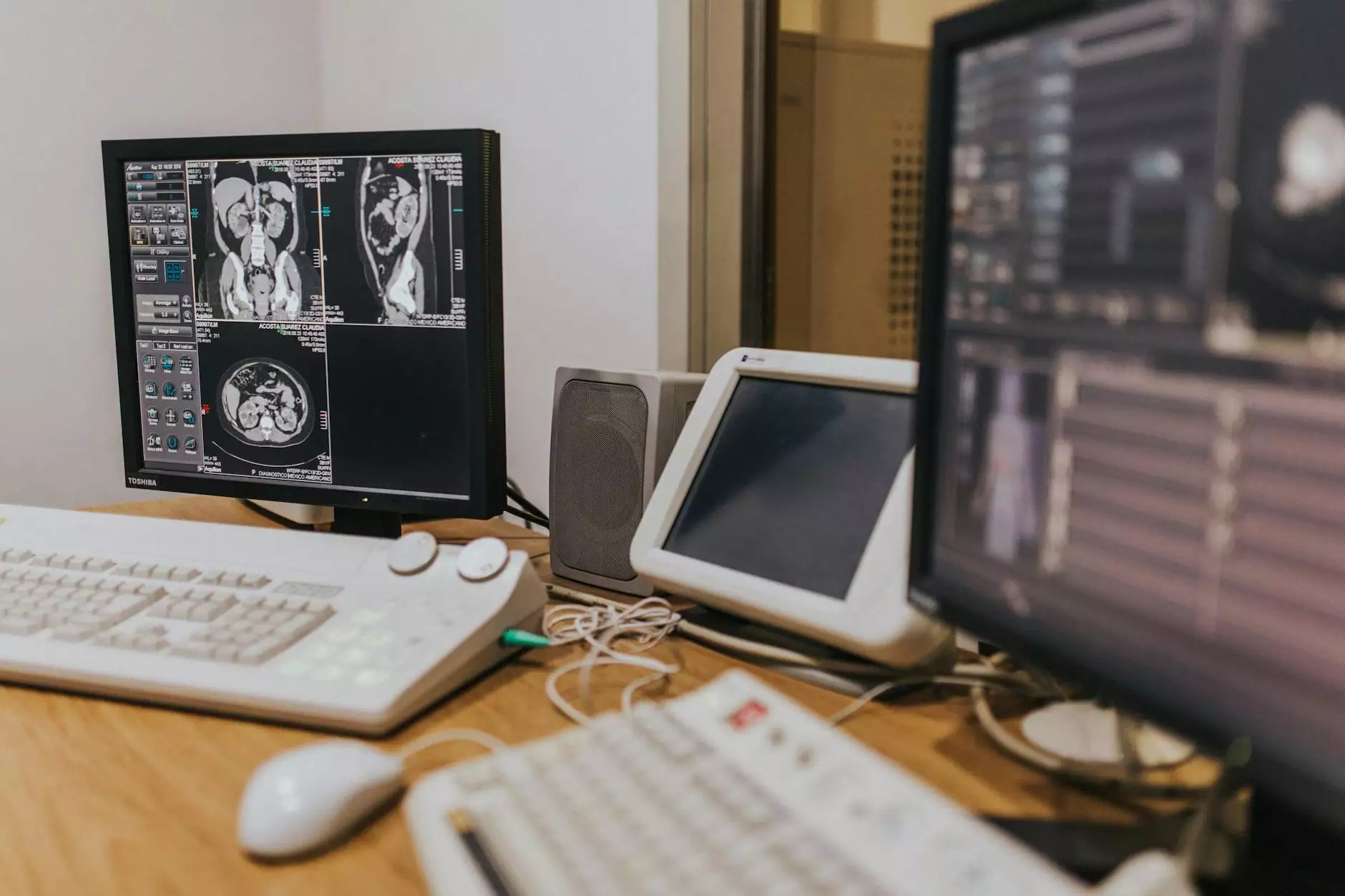Comprehensive Guide to MRI Services in Modern Healthcare

In the rapidly evolving landscape of healthcare, MRI services stand out as a cornerstone of diagnostic excellence. Magnetic Resonance Imaging (MRI) has transformed how medical professionals detect, diagnose, and monitor a wide spectrum of health conditions. As part of comprehensive health & medical services, MRI technology provides unparalleled detail, safety, and accuracy, cementing its role in the modern medical toolkit. This article explores the profound significance of MRI services within medical centers and diagnostic services, highlighting how they contribute to improved patient outcomes and the advancement of healthcare.
Understanding MRI Technology: The Heart of Diagnostic Precision
Magnetic Resonance Imaging is a non-invasive imaging modality that utilizes powerful magnetic fields and radiofrequency waves to generate detailed internal body images. Unlike X-rays or CT scans, MRI does not involve ionizing radiation, making it a safer alternative for many diagnostic purposes.
- High-Resolution Imaging: MRI provides high-resolution images of soft tissues, including the brain, muscles, ligaments, and internal organs.
- Versatility: It can visualize structures across the entire body, from the nervous system to the musculoskeletal system.
- Functional Capabilities: Advanced MRI techniques can assess not only anatomy but also physiological functions, such as blood flow (angiography) and metabolic activity.
The Role of MRI Services in Modern Medical Centers
Modern medical centers leverage cutting-edge MRI services to offer precise diagnostics that influence treatment plans, surgical interventions, and patient management strategies. Here’s how MRI services integrate into the fabric of comprehensive healthcare delivery:
Early Detection and Accurate Diagnosis
One of the core strengths of MRI technology is its ability to detect abnormalities at early stages, often before symptoms manifest. This facilitates proactive treatment approaches, improving prognosis and reducing healthcare costs. Whether diagnosing neurological disorders, musculoskeletal injuries, or internal organ pathologies, MRI provides clarity unmatched by other imaging modalities.
Guiding Treatment Planning and Monitoring
Post-diagnosis, MRI services are invaluable in planning surgical procedures or targeted therapies. For example, detailed imaging of brain tumors enables neurosurgeons to strategize precise interventions. Additionally, MRI scans are crucial in monitoring the progress of ongoing treatments, such as cancer therapy, to assess effectiveness and make necessary adjustments.
Supporting Non-Invasive Procedures
Many minimally invasive procedures now rely on MRI for guidance. Techniques like MRI-guided biopsies or ablations reduce patient discomfort while increasing procedural accuracy.
Advancements in MRI Technology Enhancing Diagnostic Capabilities
The field of MRI has witnessed remarkable technological advancements that continue to set new standards in healthcare diagnostics. These innovations include:
- Functional MRI (fMRI): Enables the visualization of brain activity in real-time, assisting in neurological and cognitive research, as well as neurosurgical planning.
- Diffusion Tensor Imaging (DTI): Maps neural pathways and white matter integrity, vital for neurological assessments and research.
- High-Field MRI (3T and above): Provides greater detail and faster imaging times, improving patient comfort and diagnostic accuracy.
- Open MRI Systems: Designed for claustrophobic or larger patients, enhancing accessibility and experience.
- Contrast-Enhanced MRI: Utilizes contrast agents to highlight specific vascular or tissue abnormalities, increasing detection sensitivity.
The Benefits of Choosing Professional MRI Services in Medical Centers
Patients seeking MRI services at reputable medical centers gain access to numerous advantages that optimize diagnostic outcomes:
Safety and Comfort
Modern MRI facilities prioritize patient safety by adhering to strict safety standards, using state-of-the-art equipment, and offering comforting amenities. Open MRI systems and noise-canceling technology further enhance patient comfort during scans.
Accuracy and Reliability
Ensuring diagnostic precision is paramount. Leading diagnostic services invest in high-field MRI units and employ skilled radiologists to interpret images accurately, minimizing false positives or negatives.
Rapid Turnaround Times
Fast imaging protocols and efficient workflows mean patients receive prompt reports, facilitating quicker treatment decisions.
Integration With Other Diagnostics
MRI services are seamlessly integrated into broader diagnostic programs, allowing comprehensive evaluation when combined with other tests like CT, ultrasound, or laboratory analyses.
The Impact of MRI Services on Healthcare Outcomes
Incorporating advanced MRI services within healthcare profoundly impacts patient outcomes by enabling:
- Early and Precise Disease Detection: Detect subtle anomalies that might be missed with other imaging techniques.
- Personalized Treatment Plans: Tailor interventions based on detailed anatomical and functional insights.
- Reduced Diagnostic Uncertainty: Minimize the need for invasive biopsies or exploratory surgeries.
- Enhanced Monitoring: Track disease progression or remission with consistent imaging benchmarks.
- Improved Patient Satisfaction: Less discomfort, faster results, and high diagnostic confidence lead to better patient experiences.
Choosing the Right Medical Center for MRI Services
When considering MRI services, it is essential to select a medical center renowned for its technological capabilities, experienced staff, and excellent patient care practices. Key factors include:
- State-of-the-Art Equipment: High-field magnets, advanced coils, and contrast agents.
- Qualified Radiologists and Technicians: Expert interpretation and patient care.
- Accreditations and Certifications: Ensuring compliance with safety and quality standards.
- Patient-Centric Approach: Comfortable environment and personalized service.
The Future of MRI Services: Innovation and Expansion
The domain of MRI technology continues to evolve, promising even greater diagnostic capabilities, faster imaging, and wider accessibility. Emerging trends include:
- Artificial Intelligence (AI) Integration: Enhancing image analysis, automating diagnostics, and predicting treatment outcomes.
- Portable MRI Devices: Bringing high-quality imaging to remote areas or bedside settings.
- Multimodal Imaging: Combining MRI with PET or CT for comprehensive diagnostics.
- Reduced Scan Times: Utilizing faster sequences and hardware improvements for patient convenience and increased throughput.
Conclusion: Investing in Superior MRI Services for Better Healthcare
In today’s healthcare environment, the importance of MRI services cannot be overstated. They are vital for early, accurate diagnosis and effective monitoring, directly contributing to improved patient outcomes and more personalized care approaches. As technology advances, healthcare providers that prioritize the adoption of cutting-edge MRI solutions will be better equipped to meet the evolving needs of their patients.
Choosing a reputable medical center that offers comprehensive MRI services with the latest innovations ensures that patients receive precise, safe, and timely diagnoses. Embracing these advanced diagnostic tools not only elevates the quality of healthcare but also fosters a proactive approach to health management that benefits everyone in the long run.
For more information about our MRI services and how we can assist you or your medical practice, visit echomagnetservices.com and discover the difference of truly advanced diagnostic solutions.






